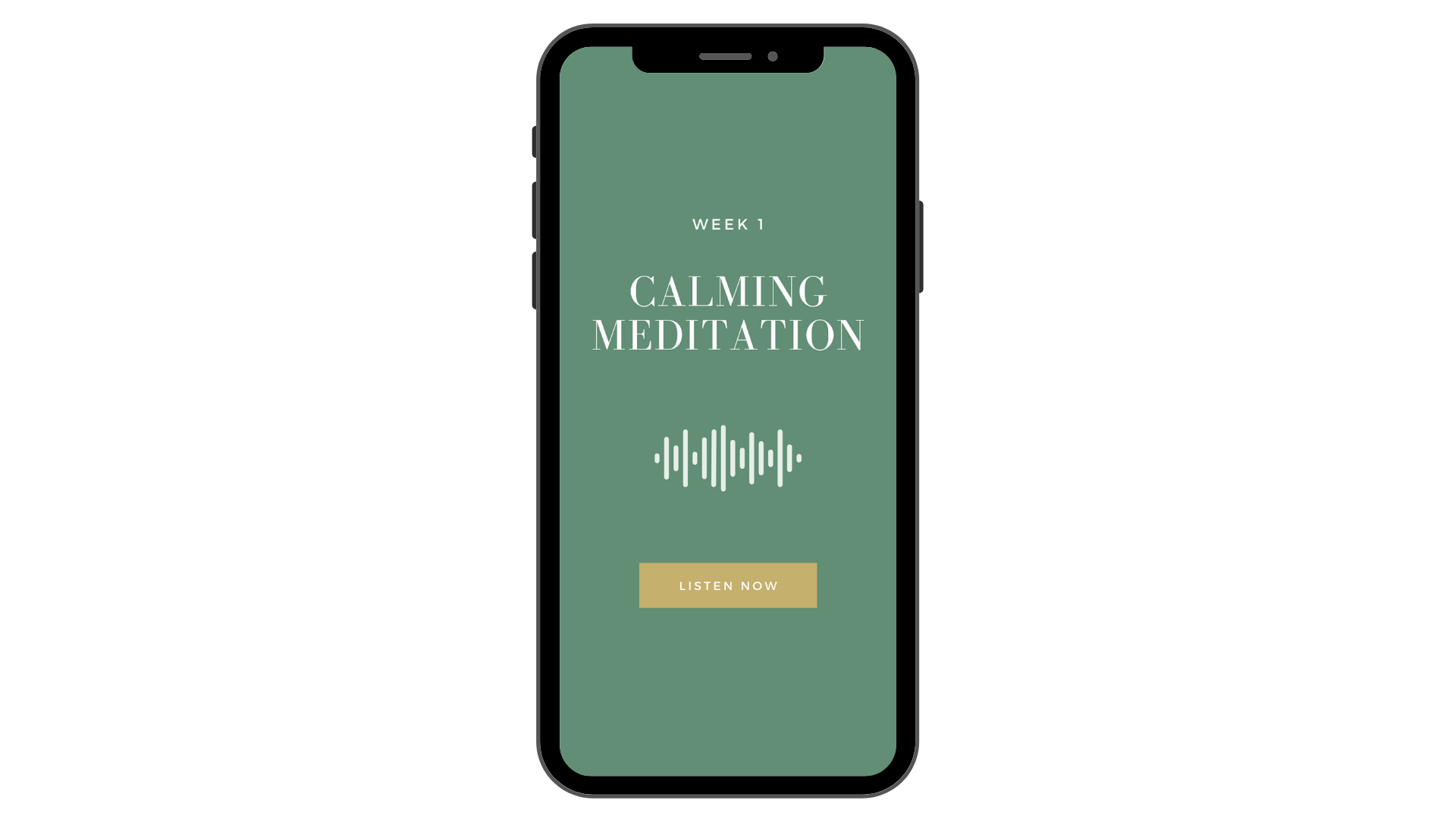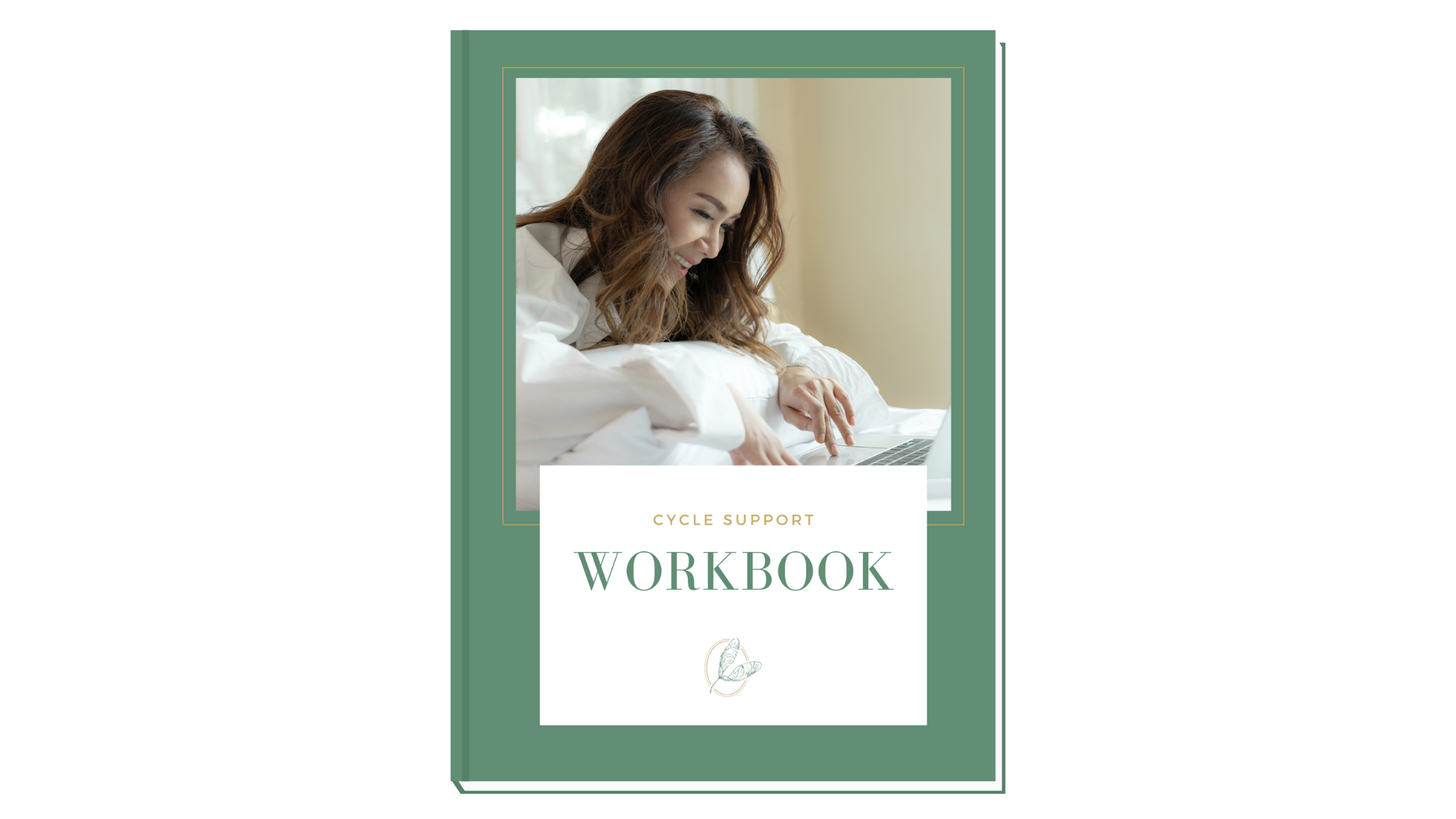Fertility Programs
CYCLE SUPPORT
- You've always been good at "getting things done."
- You've accomplished SO much in your life.
- So when it came to starting your family, you felt sure you had it—no problem.
But as you've seen one negative test after another, you've hit a wall.
You don't have to power through your next cycle without support - there are are proven ways to help you feel calmer and make this easier.
Having a baby is NOT about your effort.
It is miserable to see the stark-white window on that test every month and to still feel like you’ve got this.
You may even be one of the almost 50% of women who has gotten pregnant only to later miscarry—and the sadness can be overpowering.
Struggling to conceive can feel defeating, overwhelming, and lonely.
Many women no longer feel confident that their effort alone is what can make them a mother.
it is discouraging to say the least.
It is not surprising that 2/3 of women drop out of infertility treatment because of the “emotional toll.”
but there's good news...
There is a way to feel calm and prepared as you take the next step in your journey to motherhood
this doesn't have to be full of stress
With research-based information and support, you can actually feel calm and prepared through this process of creating your family.
You don’t have to just “power through” anymore.
our programs
Remolina Cycle Support
Research-driven support—tailored to your monthly TTC cycle—to help determined women who are struggling to conceive go from overwhelmed, sad, and stressed to prepared and calm.
our cycle support programs are
Research-based
Evidence-supported information to demystify common fertility treatment cycles and their impact on your emotions so that you can have reassurance and feel prepared through the process.
stress-reducing
Proven mind-body strategies for managing stress and isolation associated with TTC, developed by an expert the field who has been there on the infertility rollercoaster - to reduce stress, sadness and increase your sense of peace and readiness.
available for
our cycle support programs are NOT
Medical Advice
This isn’t a replacement for a reproductive endocrinologist or a solid medical workup. Instead, it’s meant to help with the emotional and behavioral journey that accompanies these medical interventions—and to make them easier.
Therapy
Therapy involves a one-on-one relationship where your history and symptoms are assessed, and includes a treatment plan tailored to reducing your specific symptoms.
Old wives’ tales
We’ve all been to the message boards and FB groups where people give opinions. Those can help with not feeling alone, but they’re usually based on opinions rather than research. This program was developed by a member of the Association for Reproductive Medicine Mental Health Professional Group and is based on strong science. Where research exists, we’ll point you to it. Where it doesn’t, we’re clear on that.
Lip service
Peer support and encouraging words can be valuable. But where this differs from other programs is the focus on research-proven skills for coping with infertility and your current cycle. You won’t find a simplistic “relax and it will happen” mentality.
Hi!
I'm Carole.

Not too long ago, I was in similar shoes to yours. I’m Dr. Carole Swiecicki, a licensed clinical psychologist with a 15 year career in helping people overcome trauma, loss, and life’s stressors. I am also an infertility survivor, IVF warrior, cat-lover, and a mom.
On my 7-year journey with trying to conceive (TTC) and navigating assisted reproductive technologies (ARTs), I experienced anticipation, overwhelm, excitement – as well as loss, sadness, and emptiness.
On my rollercoaster of a journey, I realized that an infertility diagnosis and journey can be traumatic, and that for far too many women, pregnancy losses are often traumatic losses.
I also saw that there are few resources out there for information and support that are based on proven results.
I’ve always been a bit nerdy (although now I call it “data-driven”), always looking to what’s “proven” to work.
It’s why I have worked to increase access to evidence-supported mental health treatments in my career, and why in my journey to motherhood I spent many nights scouring the scientific literature to help me be informed and feel prepared for what to expect.
It wasn’t always easy to find information. And I realized some things were missing.
And although having knowledge helped me feel prepared, I learned firsthand that even when your odds of success are 98%, that means 2% fail (and I was sometimes in that 2%)—and you need support for both scenarios.
You need information and strategies to cope with both what to expect and what you personally experience.
And you need support that is available where you are, when you need it—so that you are not waiting like you do for everything else with infertility. I became a member of the American Society for Reproductive Medicine and their Mental Health Professional Group to expand my expertise beyond trauma and my own infertility experience.
And I created Remolina and our Fertility Support Cycle Programs to fill these gaps for others on this journey.
Our Cycle Support Programs are designed to walk alongside you on your TTC journey.
They are my answer to wanting researched information about assisted reproduction and its impact on mood, and research-proven strategies to cope with the host of emotions in this process – without sugar-coating that this process is hard.
I’ve been there and I would be honored to help you on this important journey.
when you sign up for
Remolina Cycle Support
You will be:
Informed
Lessons from a reproductive mental health expert to give you insight into the impact of fertility hormones on your emotions and behaviors.
Prepared
Take back some control through learning what to expect on each type of TTC cycle, how it can impact your mood, and methods for coping.
understood
I’ve been there and won’t tell you to “relax and it will happen.” Our activities aim to help you better understand your cycle, your emotions, and has activities to help you connect with others.
Calm
Research-proven strategies for coping with the roller coaster of emotions that come with infertility, tailored to your cycle.
You will receive:
01.

A welcome and introductory lesson describing the program with a brief overview of our research-informed Uplift Coping Framework™, which organizes the many ways people cope with stress into 5 easy-to-implement categories.
02.

An overview video lesson that describes the cycle and what to expect in the coming weeks – because feeling prepared and knowing what to expect is one of the precursors to feeling calmer!
03.

4 weekly video lessons that coincide with the timeline of your cycle, delivered by me, a licensed psychologist with expertise in trauma and infertility who has been there. The weekly lessons are brief yet packed with information, including:
- What to expect that week
- Five coping activities tailored to the week and organized in the Uplift Coping Framework™
- Lessons are available on-demand in the course room and a link will be emailed to you each week if you provide a start date for your cycle
04.

4 Weekly calming audio downloads
05.

Workbook that reinforces the recorded lessons to help you infuse these skills in your new calm routine. You will receive a printed workbook and can print additional pages in the course room, including:
- A weekly coping plan to keep track of medications and coping activities
- Journal worksheets
- Connection exercises to help you gain support
- Planning activity sheets to help you prepare for ART appointments
Who it's for
Cycle support is best for those who:
- Have been trying to conceive for several months without success.
- Feel excited and nervous at the start of your cycle – but may be feeling overwhelmed because of the extra layers of struggling to conceive (timing everything, medications, schedules, blood draws, not to mention the transvaginal ultrasounds…).
- Know the disappointment of a negative pregnancy test.
- Sometimes feel terrible because you avoid baby showers and get a twinge (is it anger? Sadness?) every time you see a pregnancy announcement. (Spoiler alert – you aren’t a terrible person – you’re very normal!)
- Are tired of people saying “just relax and it will happen,” because you’ve been there, done that...and it didn’t happen.
But it’s not a great fit for those who:
Are looking for advice about medications and procedures.
We don’t provide medical advice – that’s best coming from your physician or Reproductive Endocrinologist. You can find a fertility clinic by clicking here.
Are experiencing sadness or anxiety that’s getting in the way of going about your daily routines.
Therapy is probably a better fit. Find trained infertility therapists by clicking here.
Believe that solely positive thinking will create a positive outcome.
While positive affirmations can be a powerful coping skill, years of research show that conceiving a child is a complex process and that simply thinking positively is not the main determinant of success. And positive thinkers are certainly welcome, but we recognize that pregnancies happen even when people’s mindsets are not Pollyanna. And this support is for those with various outlooks.
let's get started
Take the next step today
After you purchase, you will receive an email with a link to the Course Room. Sign in and check out the welcome video, and you will have access to all course materials!
Ovulation
Induction
REMOLINA CYCLE SUPPORT
-
6 video lessons to support an Ovulation Induction cycle (with IUI or timed intercourse)
-
4 audio calming exercises
-
Immediate access to digital content
-
Printable workbook
-
No expiration
IVF Egg
Retrieval
REMOLINA CYCLE SUPPORT
-
8 video lessons to support an IVF Egg Retrieval cycle (with fresh embryo transfer)
-
4 audio calming exercises
-
Immediate access to digital content
-
Printable workbook
-
No expiration
Frozen Embryo Transfer
REMOLINA CYCLE SUPPORT-
6 video lessons to support a Frozen Embryo Transfer cycle
-
4 audio calming exercises
-
Immediate access to digital content
-
Printable workbook
-
No expiration
Unmedicated
Cycle
REMOLINA CYCLE SUPPORT
-
5 video lessons to support an Unmedicated Cycle (with IUI or timed intercourse / ”natural cycle”)
-
4 audio calming exercises
-
Immediate access to digital content
-
Printable workbook
-
No expiration
Frequently asked
Short answer: Maybe.
The focus of this program is on helping you cope, connect, and feel calm through the challenge of infertility. It’s a mind-body program that equips you with skills to navigate and successfully complete your cycle. While other mind-body programs have been shown to improve the rates of successful pregnancies among infertility patients, this will depend on your medical history and care.
The lessons were developed by Dr. Carole Swiecicki – a clinical psychologist with a 15+ year career in helping individuals overcome stress and trauma, \ and member of the American Society for Reproductive Medicine Mental Health Professional Group. Dr. Swiecicki founded Remolina and created the course content, using her expertise in the field and also relying upon her own experience as an infertility survivor and IVF mom who has been there. Dr. Swiecicki is passionate about improving women’s lives and empowering women to flourish, even through the often-heartbreaking journey through infertility.
You have lifetime access to the Cycle Support content. We know from research that even if a first cycle is unsuccessful, three to four consecutive cycles often have higher rates of success. The skills and activities can definitely be used in consecutive cycles!
Because you receive on-demand access, we do not offer refunds for these programs. However, if you purchased the wrong cycle or made an error, please reach out and we will work with you on making it right.